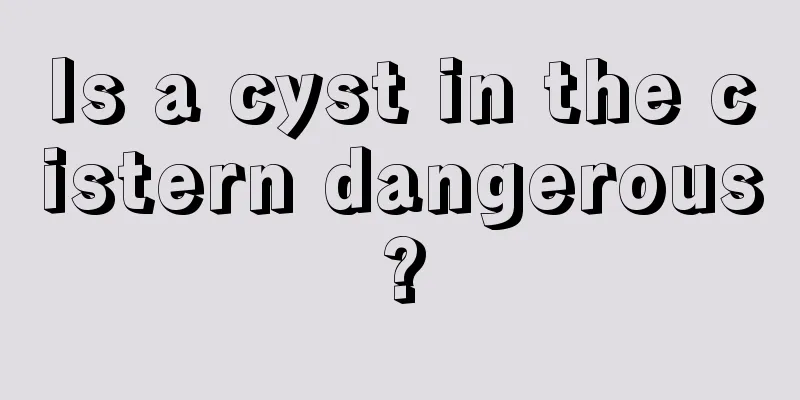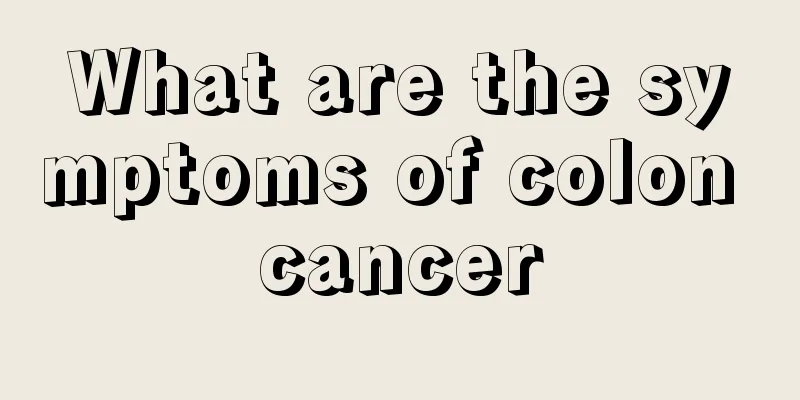Is a cyst in the cistern dangerous?

|
Cistern magnum cysts are very harmful to patients. Generally, they are caused by congenital or acquired factors. If the cyst is relatively small, the patient will not have obvious symptoms. However, if it is relatively large, the patient will often experience symptoms such as dizziness and pain, which can easily cause sudden vertigo and fainting. At this time, timely treatment must be sought. Go to the hospital for a good check-up in time. Onset site The cistern magna (also known as the cerebellocerebellar cistern) is located in the posterior and inferior part of the posterior cranial fossa, between the underside of the cerebellum, the dorsal surface of the medulla oblongata, and the inferior part of the occipital squamae. It connects to the fourth ventricle through the cerebellar creek forward and to the medullary cistern forward and outward through the side of the medulla oblongata. All three-dimensional sections can be displayed. Cistern cyst refers to the formation of a cyst in the cistern of the skull. It is a benign lesion, but if the cyst is too large, it may increase intracranial pressure, leading to headaches, nausea, vomiting, impaired consciousness or even coma, and may also cause cerebrospinal fluid obstruction. If there are obvious symptoms, surgical resection or cranial puncture to extract the cyst fluid can be considered. However, the latter requires very high equipment and physician skills, and may not be performed well in all places. Craniotomy is generally chosen. Expert advice 1. The formation of intracranial cysts is caused by genes, which means it is destined by heaven and cannot be effectively controlled at present. 2. Cyst size is not an absolute risk factor, and the appearance of symptoms is a signal that treatment is needed. 3. If symptoms of increased intracranial pressure or cerebellar ataxia appear, seek medical attention promptly. Specifically: walking difficulty, inability to stand (including inability to stand with eyes closed), nausea, and vomiting are all early symptoms, and excessive intracranial pressure can even cause coma. 4. This condition cannot be controlled by drugs at present. The best outcome is to carry it for life without symptoms, that is, it does not grow and does not affect the return of cerebrospinal fluid. If there is anything you need to pay attention to, it should be a healthy lifestyle. 5. When symptoms appear, treatment is required. Generally, there are two types of treatment: shunt surgery and resection surgery. The most radical treatment is resection surgery. The surgery enters from the back of the brain-cervical joint area, opens the skull, separates and removes the cyst. It has no effect on the brain tissue and generally rarely recurs. This is a complete radical surgery. |
<<: How to treat femoral head cyst
>>: How to treat ganglion cyst to eradicate it
Recommend
Can a colonoscopy confirm whether there is colon cancer? What should I do if I suspect I have colon cancer?
Sometimes, through the Internet or reading other ...
There is a small shadow of 0.8*1 in the right lung. Is it lung cancer?
There is a small shadow of 0.8*1 in the right lun...
What is the cause of bad breath
People with bad breath will feel embarrassed when...
How to wash white clothes that turn yellow?
Many people like to wear white clothes. White clo...
What harm does thrombocytopenia do to the body?
The health of the human body also needs to be wel...
Can garlic soaked in vinegar help lose weight?
Garlic is a common ingredient in people's kit...
What disease is it if the prostate PSA is over 30? Will PSA over 30 be prostate cancer?
When pSA exceeds 30, the possibility of prostate ...
Redness next to the nose
Although skin diseases are less likely to occur a...
What should I do if I am afraid of mosquito bites
Mosquitoes are the most annoying creatures on ear...
What are the benefits of polarized glasses
In modern life, eyes are basically under serious ...
I have a headache and feel dizzy every day
Some people often say that they live in a muddle ...
How to wash clothes with oil stains
How to wash clothes with oil stains? Oil stains a...
What are the early signs of brain cancer?
Brain cancer is a malignant tumor in the brain. T...
What foods can promote blood circulation?
Our human body is very fragile. In our daily life...
What material is good for diapers
Diapers are an outstanding achievement in the dev...









